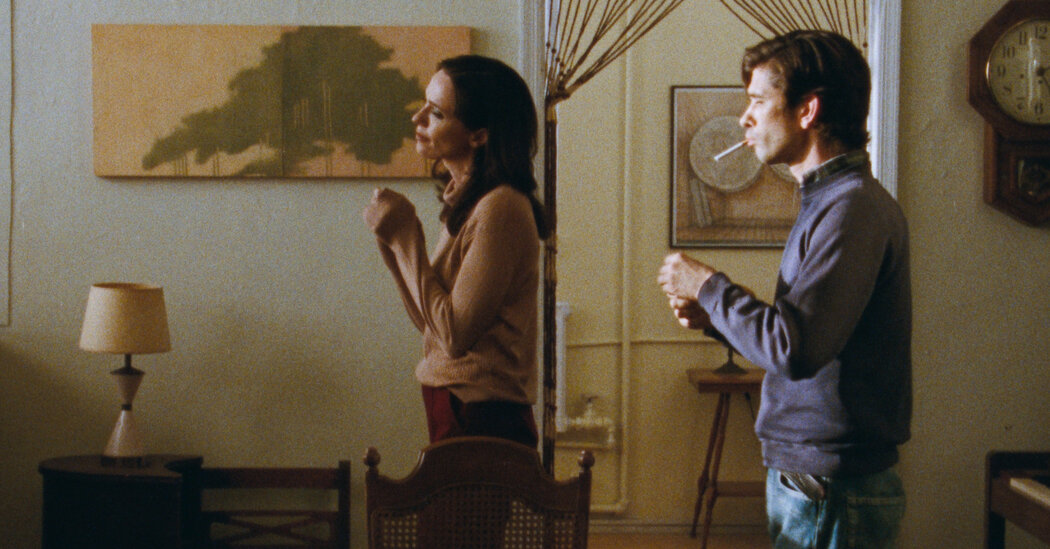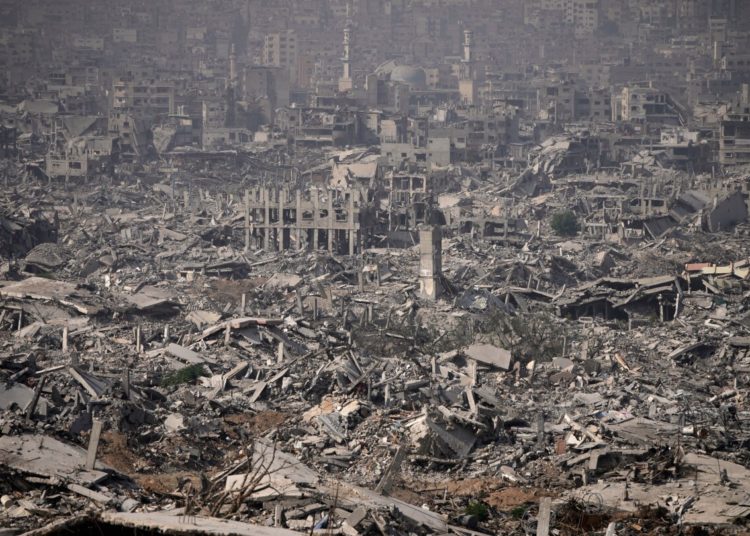A quintessentially American movie starring two splendid British actors, “Peter Hujar’s Day” resists categorization. Neither biopic nor strictly documentary, this backward glance at the New York City art scene of the 1970s flirts with both genres before creating its own. The result is a charming experiment that should delight those who like their pleasures both nostalgic and voyeuristic.
And maybe a little bit sad. There might be only two characters onscreen, but the ghosts of the celebrated and the gone-too-soon haunt every frame. Developed from a transcript of a 1974 interview by the writer Linda Rosenkrantz, an obsessive chronicler of communication, and her close friend the noted photographer Peter Hujar, the film vividly conjures a time when cheap rents allowed art of all kinds to flourish. Curious as to how other artists spent their time, Rosenkrantz (played by an elegantly poised Rebecca Hall) planned a book that would document some of her friends’ daily activities.
The book never materialized. What did show up was Hujar’s transcript, picked up in a Paris bookstore by the filmmaker Ira Sachs. The resulting movie shows Hujar (a fabulous Ben Whishaw) narrating the previous day’s events while Rosenkrantz tapes him, interjecting now and then with questions and casual comments. Veering from the trivial (running errands, napping) to the consequential (an assignment to photograph the poet Allen Ginsberg for The New York Times), Hujar’s monologue is astoundingly detailed and wonderfully evocative.
Set entirely in Rosencrantz’s Manhattan apartment (with brief detours to street and rooftop), “Peter Hujar’s Day” is by turns languid, funny, tender and endearing. Free of flashbacks or distracting re-enactments, the movie forces focus on Whishaw’s naturalistic delivery and fluid body language as the two drift from living-room to bedroom, accompanied by Mozart on the soundtrack and an endless supply of cigarettes. Carefully posed shots of the actors, like images intended for a movie poster, pause the film’s flow and draw attention to its theatricality.
At the time of the interview, Hujar (who died in 1987 of AIDS-related pneumonia at age 53) was just beginning to be widely noticed, and he comes across here as gentle, playful and candidly self reflective. Whether bemused by Ginsberg’s rundown tenement apartment and hostility to portrait photography, or bemoaning the difficulty of getting paid — precarious finances are a repeated refrain — Hujar maintains an easy, gossipy tone that speaks to the warmth between him and Rosenkrantz. This closeness is emphasized by Alex Ashe’s gracious photography, and by creative staging that suggests a mutual, platonic affection.
Beautifully performed and lovingly assembled, “Peter Hujar’s Day” bookmarks a moment when a pack of cigarettes cost 56 cents and being gay could cost you far more. In its attention to the quotidian routines familiar to us all, the movie finds meaning in the mundane, showing how the most ordinary events — like, in Hujar’s case, a phone call from Susan Sontag — can one day add up to an extraordinary life.
Peter Hujar’s Day
Not rated. Running time: 1 hour 16 minutes. In theaters.
The post ‘Peter Hujar’s Day’ Review: Tell Me Everything appeared first on New York Times.




